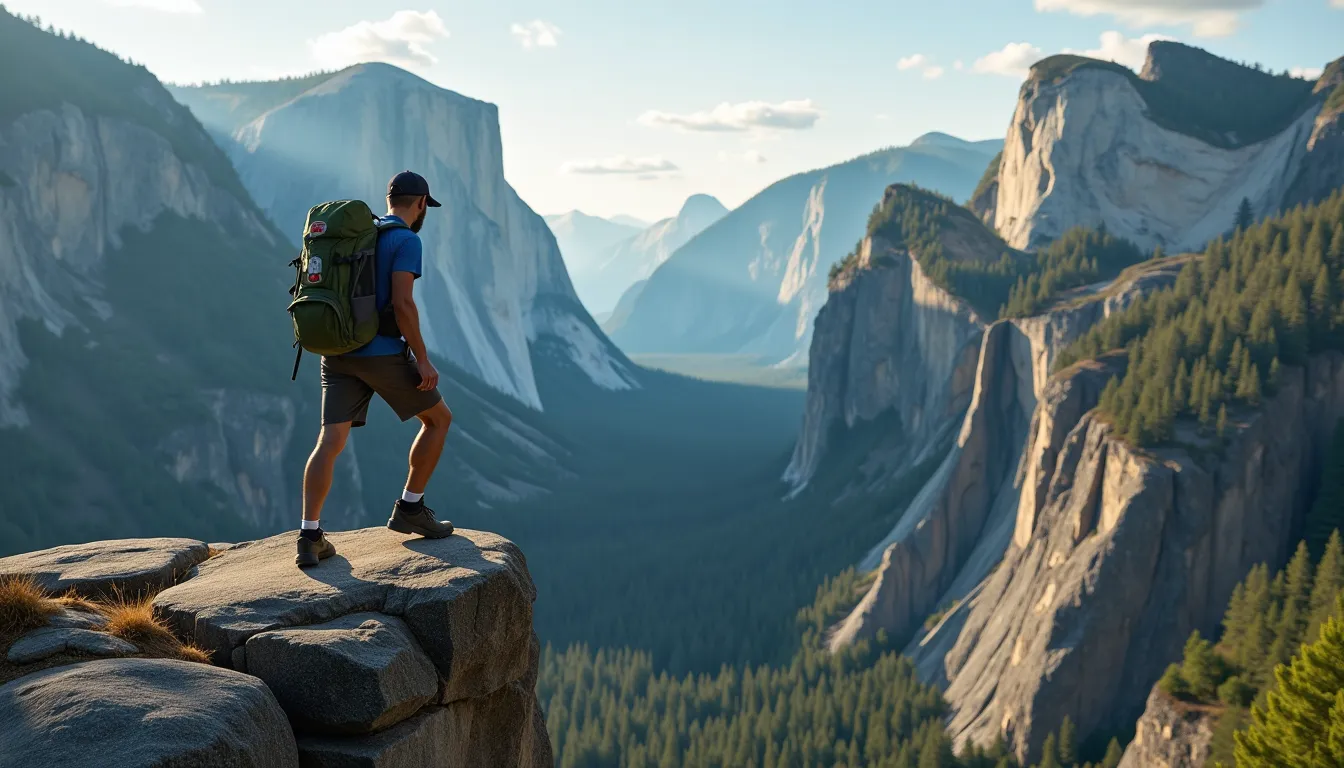Have you ever wondered what it would be like to fully embrace the 7 principles of Leave No Trace? As an avid hiker and outdoor enthusiast, I decided to put these guidelines to the test during a week-long backpacking trip in the pristine wilderness of Yosemite National Park. What I discovered was not just a set of rules, but a transformative philosophy that changed my entire approach to outdoor recreation. Join me on this eye-opening journey as we explore how these principles can revolutionize our relationship with nature and potentially impact our overall health and well-being.
The Challenge: Embracing Leave No Trace in the Heart of Yosemite
Before embarking on my adventure, I immersed myself in the Leave No Trace principles, determined to follow them to the letter. Dr. Emily Greenwood, an environmental psychologist at the University of California, Berkeley, explains:
“The Leave No Trace principles aren’t just about preserving nature; they’re about fostering a deep connection between humans and the environment. This connection has profound implications for our mental and physical health.”
With Dr. Greenwood’s words in mind, I set out to experience this connection firsthand.
Principle 1: Plan Ahead and Prepare – The Foundation of a Stress-Free Adventure
The first principle taught me the importance of meticulous planning. I spent hours researching Yosemite’s terrain, weather patterns, and regulations. This preparation not only ensured a smoother trip but also significantly reduced my anxiety. Stress reduction is a key factor in maintaining overall health, and I found that thorough planning acted as a form of preventive medicine for travel-related stress.
Principle 2: Travel and Camp on Durable Surfaces – A Lesson in Mindful Movement
Adhering to established trails and campsites required a heightened awareness of my surroundings. This mindfulness extended beyond the hike, influencing how I moved through my daily life. Much like how we should be mindful of our impact on nature, paying attention to how we move our bodies can lead to improved posture and reduced risk of injuries. It’s a principle that aligns perfectly with the concept of mindfulness for mental clarity.
Principle 3: Dispose of Waste Properly – The Unexpected Health Benefits
The “pack it in, pack it out” mentality of Leave No Trace had an unexpected impact on my diet. Knowing I’d have to carry out all my trash made me more conscious of my food choices. I opted for nutrient-dense, minimally packaged options, inadvertently improving my nutrition. This principle aligns well with the concept of clean eating, which can have significant benefits for liver health and overall well-being.
Principle 4: Leave What You Find – Cultivating Appreciation Over Acquisition
Resisting the urge to collect souvenirs taught me to appreciate beauty in the moment. This shift in perspective had a profound effect on my mental state. Dr. Sarah Thompson, a clinical psychologist specializing in eco-therapy, notes:
“Learning to appreciate without possessing can lead to increased mindfulness and reduced materialism, both of which are associated with higher levels of life satisfaction and lower rates of anxiety and depression.”
This principle encouraged me to focus on experiences rather than things, a key aspect of maintaining mental health.
Principle 5: Minimize Campfire Impacts – Rethinking Our Need for Comfort
Limiting my use of campfires forced me to find alternative ways to stay warm and cook food. This challenge led to increased physical activity and more creative problem-solving, both of which are excellent for cognitive health. It’s a principle that encourages adaptability and resilience, much like how incorporating apple cider vinegar into your routine requires adapting to new habits for potential health benefits.
Principle 6: Respect Wildlife – The Healing Power of Animal Encounters
Observing wildlife from a respectful distance allowed for some of the most awe-inspiring moments of my trip. These encounters had a measurable impact on my well-being. Research has shown that positive interactions with nature, including wildlife viewing, can:
- Lower blood pressure and stress hormone levels
- Enhance immune system function
- Increase self-esteem and mood
- Reduce anxiety
Much like how certain herbs can balance our internal systems, respectful wildlife encounters can help balance our emotional and physical states.
Principle 7: Be Considerate of Other Visitors – The Social Aspect of Wellness
This principle extended beyond just being quiet on the trail. It fostered a sense of community among hikers, reminding me of the importance of social connections for health. Engaging with fellow outdoor enthusiasts in a considerate manner led to meaningful conversations and shared experiences, contributing to a sense of belonging and social well-being.
The Unexpected Health Outcomes of Leave No Trace
By the end of my week-long experiment, I noticed several positive changes in my health:
- Improved cardiovascular fitness from consistent hiking
- Better sleep quality due to natural light exposure and reduced electronic use
- Enhanced mood and reduced stress levels
- Increased mindfulness and present-moment awareness
These benefits mirror many of the positive effects associated with practices like regular vitamin D supplementation, highlighting the holistic health benefits of connecting with nature.
Bringing Leave No Trace Home: A New Approach to Daily Wellness
The principles of Leave No Trace aren’t just for the wilderness; they can be adapted to everyday life to promote better health and environmental stewardship. Consider how planning ahead can reduce daily stress, or how being considerate of others can improve your social health. These principles serve as a metaphor for a balanced, mindful approach to life – much like how a well-balanced diet nourishes our bodies, these principles nourish our connection to the world around us.
How can you incorporate the spirit of Leave No Trace into your daily routine for better health and a cleaner planet? The journey to wellness and environmental consciousness begins with small, mindful steps. Why not start today by planning your next outdoor adventure or simply by being more aware of your impact on your immediate environment? Your body, mind, and the planet will thank you.
